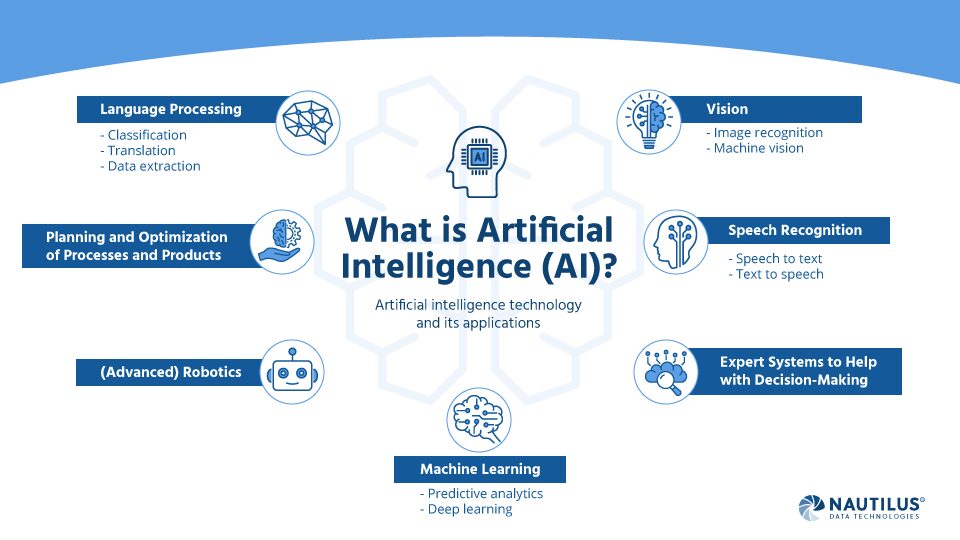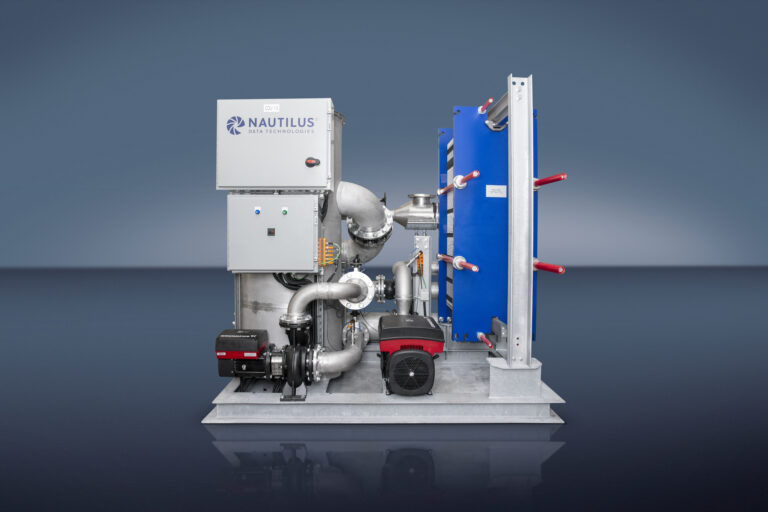Perhaps you’ve heard that we’re in the business of creating data centers that run on sustainable power, with PUE at 1.10 or below, without water consumption, and at higher densities per rack than nearly any commercial data center provider.
But perhaps you haven’t heard why.
We’re doing what we can to help the planet, solve the digital divide, reduce pressures on power grids and water supplies. All those motives are real, and we’re committed to them.
But atop all the possibilities for environmental and social advantages in what we do, we’re focused on our customers. And our prospects are signaling the need for radically new data center designs and capabilities. We’re seeing a new wave of workload innovation that will force data center providers to rapidly change what they do or, to put it simply, be left behind.
It’s easy to dismiss what we’re saying since we’re a small startup. However, you need to keep in mind that long-standing innovators in data center design founded Nautilus Data Technologies. We designed and built many of the data centers in Silicon Valley, built data centers for the biggest social media platforms globally, and built data centers in places others would consider impossible. We’re well aware of what’s possible in the data center world — and what customers demand — and we’re very good at looking into the future of the data center business and technologies.
Here’s what we’ve learned. Today, dozens of prospects need data centers that offer:
- No physical redundancy in the data center — not even a UPS
- PUE of below 1.10, and 100% use of sustainable power
- Rack densities in the 40-50kw range, with a roadmap to 100kw per rack and beyond.
And they’re willing to pay, in advance, for up to five years of service from providers who can match these requirements.
Who are these prospects? Cryptocurrency companies.
Ah, cryptocurrency. It’s a dirty word in some circles. After all, it’s an unregulated wilderness with vast fortunes being made and lost. And understandably, many data center providers don’t want to be involved. Crypto seems too volatile, too risky.
But here’s the truth. Crypto is at an inflection point. Until recently, cheap power, cheap hardware, and a relative lack of regulation led crypto miners to set up in China. Still, China’s recent moves to expel them force companies to set up shop in places with more stability and a less arbitrary rule of law.
Combine that development with global moves to regulate cryptocurrencies, and suddenly, data center providers are becoming credible prospects. Already, companies are airlifting bitcoin mining equipment, crammed with GPUs, into the United States, and municipalities like Miami are working to position themselves as centers for crypto mining.[1]
However, even though there’s demand from crypto companies, can today’s data center colocation providers take advantage of the demand?
We think the answer is yes and no.
We’ve had conversations with crypto companies, and they’ve told us that they need data center capacity TODAY, NOW, and they’ll take what they can get. After all, there’s money to be made, and time is of the essence. Crypto companies will, in the short term, start sucking up available capacity where they can.
We’re told that cryptocurrency companies are willing to pay for data center capacity in advance, in cash. That’s going to be a hard offer for data center providers to turn down. We think, over the next two years, we’ll see shortages in some markets as cryptocurrency companies fill racks with mining equipment, pushing out other buyers who can’t or won’t pay in advance or pay inflated prices.
However, over the longer term, cryptocurrency companies will be putting pressure on their partners for a different kind of data center supply. Their demands will include:
- No redundancy. Cryptocurrency companies tell us short term power or network outages simply don’t matter to their business model. They’re willing to tolerate those trivial impacts because, over the long term, they’re not interested in paying extra money for generators, UPSs, or N+2 reliability. They don’t care.
- Massive density. Crypto companies need to cram as many GPUs into a rack unit, and the more GPUs they can support in a rack, the more money they make. Ideally, they want power and cooling that meets or exceeds 40kw per rack, and they want to know what the roadmap is for 100kw per rack.
- Sustainable and cheap power. Cryptocurrency mining companies understand the path to credibility goes through public relations, and already, talk about electricity utilization, and pressure on already stretched grids are driving cryptocurrency companies to explore sustainability. Data center providers will be under pressure to power crypto mining with sustainable and renewable energy. They’ll also be under pressure to ensure that their data centers are as efficient as possible.
- Rapid deployment of new sites and new capacity. The traditional multi-year process of commissioning a data center isn’t agile enough for cryptocurrency companies. They’re willing to think outside the box — putting hardware on bread racks — if it gives them a market advantage.
The problem is that many current data center providers won’t be able to meet these requirements. To be honest, retrofitting existing facilities to meet these demands won’t be quick enough or cost-effective enough for many data center providers to achieve a positive return on investment. Instead, we’re likely to see new, scrappy, aggressive data center providers who can meet these challenges through a combination of lateral thinking and new technologies. Some approaches will include:
- Choosing anything that accelerates data center design, deployment, and provisioning. Data centers will become more modular, more prefabricated, and will utilize brownfield sites with easy access to power and cooling.
- Investment in owned renewable energy and water supplies. Hyperscalers are doing everything they can to purchase renewable energy, and there isn’t enough to go around.[2]
- New tech that supports unprecedented density, efficiency, and future proofing. 40kw per rack is going to be the new status quo. This requirement will push liquid cooling, in all its forms, into mainstream acceptance. Customers will demand lower and lower PUE, they’ll demand more and more density, and they’ll demand designs that give them headroom to accommodate future technology change.
Of course, it’s easy to think that these changes will be niche changes. After all, there won’t be ten thousand cryptocurrency mining companies globally, so these pressures might only impact a few data center providers.
However… there’s another workload coming. It uses the same underlying technology as cryptocurrency. It will be ubiquitous in five years. And every data center around the world will have to support it…it’s AI.
Artificial Intelligence and the Impact on the Data Center
AI’s impact on the data center will be enormous but will emerge at a more measured pace. AI infrastructure, built on GPUs and other specialized silicon, puts intensive demands on data center power and cooling. The Tier 1 server manufacturers are putting dual 2400w power supplies in their 2U servers to accommodate GPU power demands, and we’ll see those power demands grow and grow as more workloads require specialized silicon.
Right now, AI infrastructure deployment is being slowed by the growth of cryptocurrency, as they both compete for an essential resource, the GPU, during a time of silicon shortages and supply chain disruptions. But over the long term, we see supply catching up. We’re also seeing that organizations are under pressure to add artificial intelligence and machine learning capabilities to more and more applications, a trend that is only accelerating due to customer demands, shortages of important skill sets, and competitive pressures.
Once AI becomes more mainstream, more and more data center providers will be forced to either retrofit existing sites or build new sites to accommodate demands for higher density and greater efficiency. You could say that cryptocurrency mining is the vanguard for a radical shift in what it means to be a data center provider, and AI will make that shift a universal one. Every single data center provider will be forced to change or become obsolete. That’s a challenge the industry has never faced, and it’s a challenge that will accelerate growth for some providers and leave others behind.

Fortunately for cryptocurrency companies, companies building AI infrastructure, and the entire data center industry, we’re working hard to solve the problems cryptocurrency and AI bring to the data center density. Our proven data center designs already provide over 55kw per rack, zero water consumption, and a PUE below 1.15. To learn more about how we do it, you can check out our technology page.
[FEATURED IMAGE] Photo by André François McKenzie on Unsplash
[1] https://www.forbes.com/sites/zinnialee/2021/06/23/bitcoin-mining-companies-exiting-china-as-authorities-crackdown-on-cryptocurrencies/?sh=192ee98b3983C
[2] .https://www.wsj.com/articles/amazon-and-other-tech-giants-race-to-buy-up-renewable-energy-11624438894


